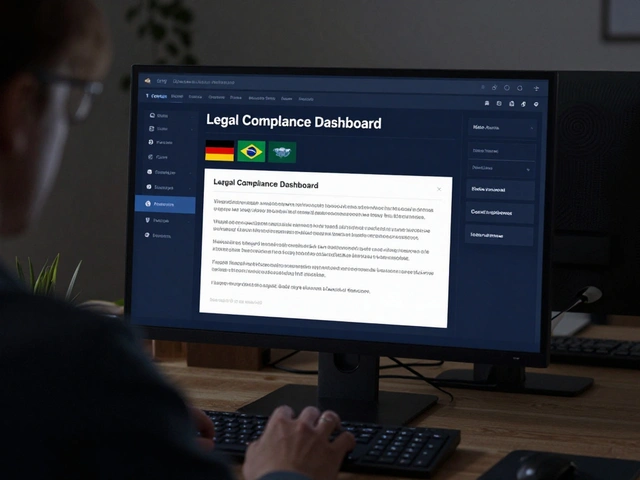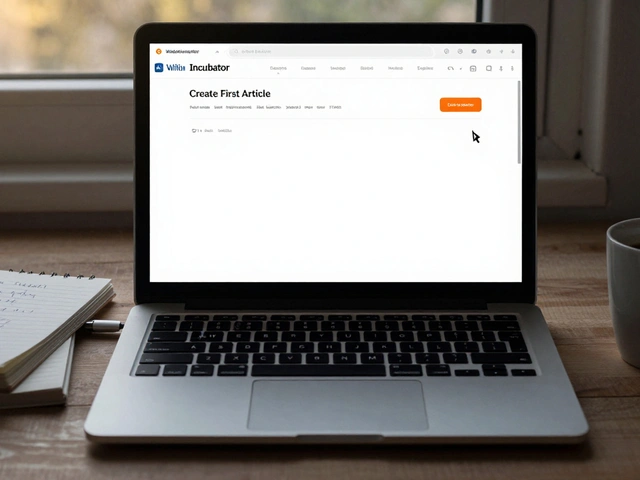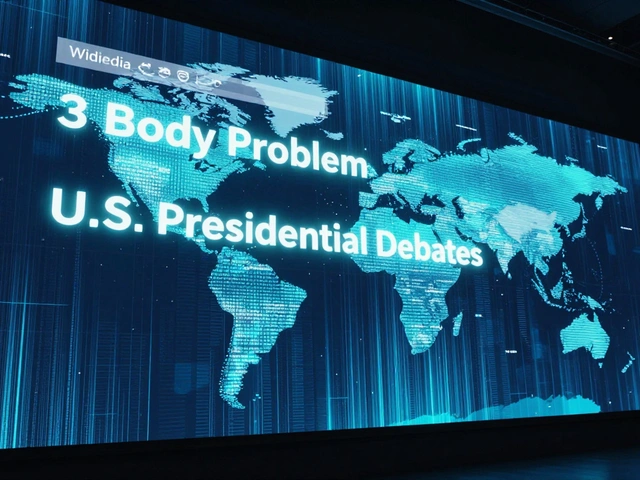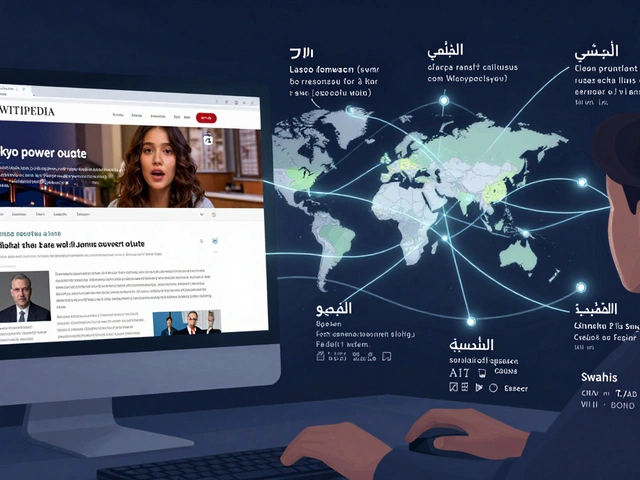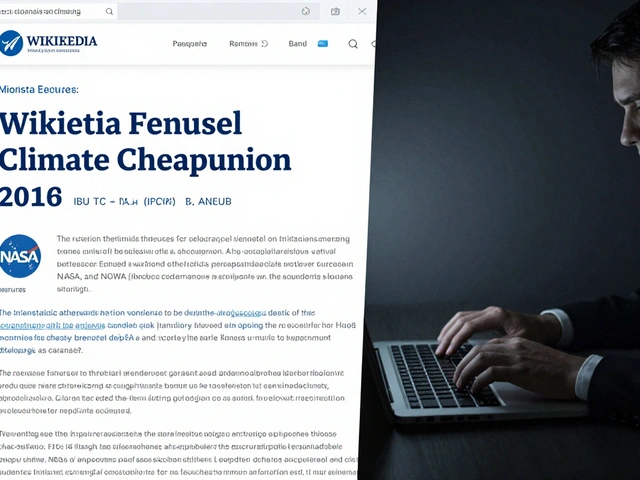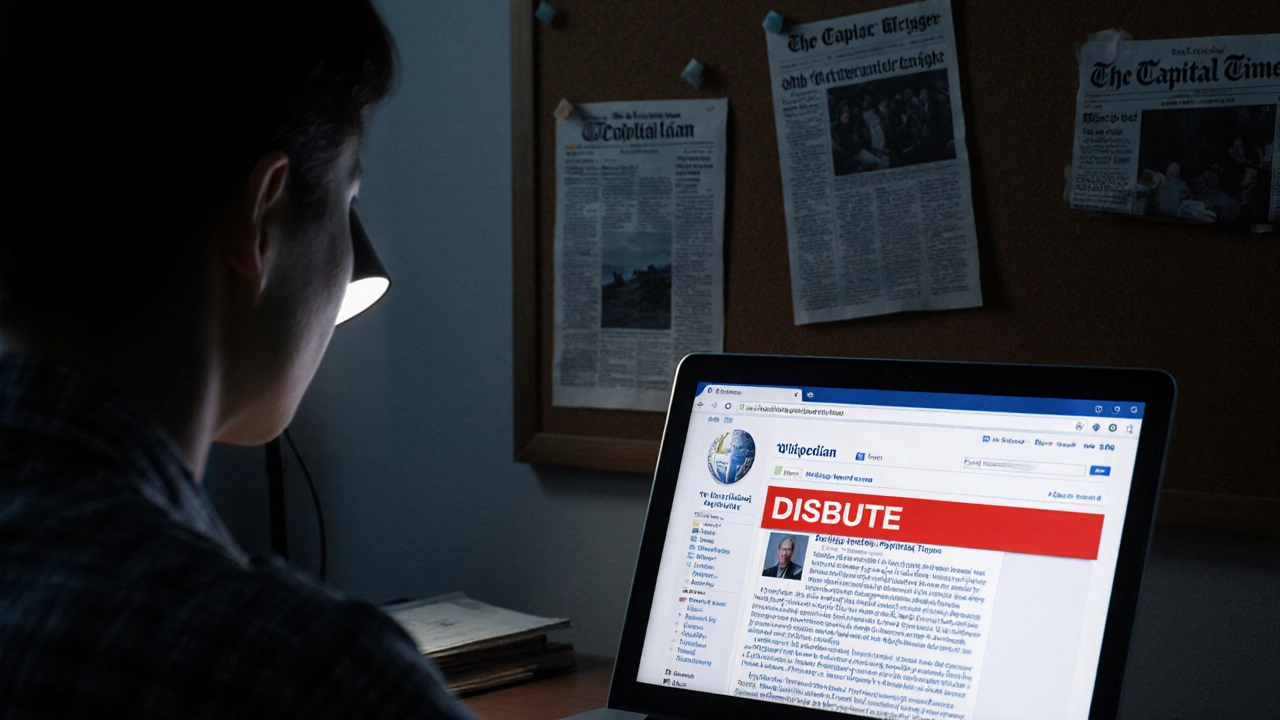
When your name or organization shows up on Wikipedia and a dispute blows up, it doesn’t just disappear when the edit war ends. The article might get locked, the talk page might fill with hostile comments, and worst of all-people who don’t know the full story still see the final version. That’s not just a Wikipedia problem. It’s a reputation problem.
Why Wikipedia Disputes Hurt More Than Other Online Conflicts
Most social media fights fade after a few days. But Wikipedia articles live forever. A single negative edit, even if later reversed, can stick in search results for years. If your company was labeled "controversial" or your professional profile was tagged with "alleged misconduct," that label doesn’t vanish just because you won the edit battle.
Wikipedia’s neutrality policy means editors don’t care if you’re right-they care if you’re cited. If you don’t have independent, reliable sources backing your side, you lose. Even if you’re telling the truth, without third-party coverage, Wikipedia treats your claim as opinion. That’s why so many people walk away from these fights feeling silenced, even when they’re not in the wrong.
Real example: In 2023, a small tech startup in Portland was labeled "failed startup" on its Wikipedia page after a disgruntled former employee added unverified claims. The company spent six months trying to get it corrected. They had press coverage, revenue figures, and customer testimonials-but none of it mattered until a journalist from The Oregonian published a follow-up piece. Only then could they cite a reliable source to overturn the label.
What Happens When a Dispute Goes Public
Wikipedia disputes rarely stay quiet. Once an edit war starts, it often gets flagged for administrator review. That triggers:
- Page protection (editing locked to admins or autoconfirmed users)
- Arbitration requests (formal complaints filed with Wikipedia’s dispute resolution team)
- Public discussion on the article’s talk page, visible to anyone
- Archived edits that remain searchable
These aren’t hidden. Journalists, researchers, and even potential employers check these pages. A single archived edit saying "this company has been accused of fraud"-even if later proven false-can linger in search engine snippets. Google doesn’t care about your side of the story. It shows what’s on Wikipedia.
Wikipedia doesn’t delete content because it’s unfair. It deletes content only if it violates policies: no original research, no unsourced claims, no conflict of interest. That’s why trying to argue your case directly on the article page almost always backfires.
How to Stop the Damage Before It Spreads
If you notice a dispute brewing, act fast-but not the way you think.
Don’t edit the article yourself. Don’t comment on the talk page. Don’t try to "correct" things publicly. That’s the quickest way to get blocked or flagged for conflict of interest.
Instead:
- Find out who started the dispute. Check the edit history and user profiles. Look for patterns-are they a single person or a group?
- Search for existing sources about your topic. Use Google Scholar, library databases, or news archives. If you can’t find credible coverage, you’re not ready to fight yet.
- Reach out to independent journalists or researchers who’ve covered similar topics. Ask if they’d be willing to write about your side. A single credible article changes everything.
- Document everything. Save screenshots of the disputed content, edit histories, and your communications. You’ll need this later.
One nonprofit leader in Wisconsin had her organization falsely labeled as "fraudulent" after a single anonymous edit. She didn’t argue. She hired a local reporter to fact-check the claims. The resulting article was published in the Madison Capital Times. Within two weeks, Wikipedia editors cited it to rewrite the entire page.

How to Actually Fix the Article
Once you have reliable sources, here’s how to proceed without triggering another conflict:
- Use the article’s talk page to propose changes. Don’t demand. Ask: "Could we add this source to reflect recent developments?"
- Always cite your sources in the exact format Wikipedia requires. Use
{{cite news}}or{{cite web}}templates. - Be specific. Don’t say "the article is wrong." Say: "Page states X. Source Y from Z publication shows this is outdated. Here’s the link."
- Wait. Wikipedia editors move slowly. Give them 7-14 days to respond. If no one replies, politely ask again.
Don’t try to edit the article yourself unless you’re an experienced Wikipedia editor with no connection to the subject. Even then, it’s risky. The safest path is to get a neutral third party to make the edit.
Some organizations hire Wikipedia consultants-people trained in Wikipedia policy who can make edits on your behalf without triggering conflict-of-interest flags. These aren’t ghostwriters. They’re policy experts who know how to frame changes so they stick.
What Not to Do
These mistakes make reputation recovery harder:
- Creating a fake Wikipedia account to edit your own page
- Asking friends or employees to vote in deletion discussions
- Threatening editors or reporting them for "harassment"
- Trying to pay someone to fix the article
- Posting emotional rants on social media about "Wikipedia censorship"
Wikipedia’s community hates conflict of interest. If they sense you’re trying to manipulate the system, they’ll double down on the negative content. The more you fight, the more attention the article gets.

When All Else Fails: Reputation Recovery Beyond Wikipedia
Even if you can’t get the Wikipedia page changed, you can still control how people see you.
Build up positive content that outranks the Wikipedia article in search results:
- Write a detailed company history on your own website with citations
- Get interviewed on podcasts or local news
- Encourage satisfied customers to leave reviews on Google, Trustpilot, or industry sites
- Publish press releases about milestones, awards, or partnerships
Search engines prioritize fresh, authoritative content. If you have five strong, recent articles about your work, the Wikipedia page becomes just one of many results-not the dominant one.
One university professor in Ohio was falsely labeled "plagiarist" on Wikipedia after a student dispute. He couldn’t get the page changed. Instead, he published a detailed public response on his university profile, got cited in three academic blogs, and was invited to speak at a national conference. Within a year, his Wikipedia page was buried under newer, positive results.
How Long Does Recovery Take?
There’s no quick fix. Most successful reputation recoveries take 3-12 months. The timeline depends on:
- How many reliable sources you can generate
- Whether the dispute involved serious allegations (fraud, abuse, etc.)
- How active the opposing editors are
Simple factual errors (wrong dates, misspelled names) can be fixed in weeks if you have good sources. Serious allegations take longer because Wikipedia editors are cautious. They want multiple independent sources before changing a damaging claim.
Patience and persistence matter more than aggression.
Can You Prevent This From Happening Again?
Yes. The best defense is proactive monitoring and preparation.
- Set up Google Alerts for your name, organization, and key staff
- Check your Wikipedia page every 3-6 months
- Have a list of trusted journalists, researchers, and media outlets you can contact if needed
- Keep a folder of press clippings, annual reports, and official statements ready
- Train your team: Never edit Wikipedia directly. Always go through official channels
Organizations that treat Wikipedia like a public record-not a marketing tool-do best. They don’t try to control it. They just make sure the truth is easy to find elsewhere.
Can I edit my own Wikipedia page if I’m the subject?
Technically, yes-but it’s strongly discouraged. Wikipedia’s conflict of interest policy says you shouldn’t edit pages about yourself, your organization, or close associates. Doing so can lead to your edits being reverted, your account blocked, or even a formal arbitration case. The safest approach is to gather reliable sources and ask an independent editor to make the change.
What if someone adds false information to my Wikipedia page?
Don’t panic. First, check the edit history to see who made the change. Then, go to the article’s talk page and politely explain why the information is inaccurate, citing reliable sources. If it’s a serious false claim (like criminal allegations), contact Wikipedia’s OTRS team (open ticket system) with documentation. In most cases, administrators will revert the edit if you provide solid evidence.
How do I know if a source is "reliable" on Wikipedia?
Wikipedia considers reliable sources to be those that are independent, published, and have editorial oversight. Examples include major newspapers (The New York Times, The Guardian), academic journals, books from reputable publishers, and official reports from government or nonprofit organizations. Blogs, press releases, personal websites, and social media posts are not reliable. The key is whether the source has a reputation for fact-checking.
Can I hire someone to fix my Wikipedia page?
Yes-but be careful. Many so-called "Wikipedia services" are scams or violate Wikipedia’s policies. Only work with consultants who follow Wikipedia’s guidelines: no paid editing without disclosure, no direct edits on your behalf without transparency, and no guarantee of results. The Wikimedia Foundation lists approved professionals on its website. Look for those who emphasize neutrality and sourcing over manipulation.
Why won’t Wikipedia delete negative information even if it’s false?
Wikipedia doesn’t delete content just because it’s negative or false. It deletes content only if it violates policies: no original research, no unsourced claims, or if it’s defamatory and meets legal criteria. If someone added a false claim with a citation-even if that citation is flawed-Wikipedia won’t remove it unless you provide a stronger, reliable source that contradicts it. The system is designed to rely on evidence, not emotion.
If you’ve been caught in a Wikipedia dispute, remember: the goal isn’t to win an argument on a talk page. It’s to make sure the truth is visible, credible, and easy to find. That takes time, patience, and reliable sources-not shouting louder.
